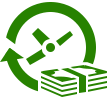From your practice standpoint, what have you read this week in your text or in the lesson that offered a new view or appreciation for standardized terminology? Be specific.
example attached
Standardized Terminology
 What are the reasons why nurses need to be concerned about standardized terminology? In many prelicensure nursing programs, medical terminology is a required course. If it is not required, it is certainly implied that nurses be able to speak “medical.” However, using standardized terminology as it relates to nursing practice is imperative so that we can communicate among each other, other disciplines, and those who review nursing outcomes or data and provide reimbursement for services provided.
What are the reasons why nurses need to be concerned about standardized terminology? In many prelicensure nursing programs, medical terminology is a required course. If it is not required, it is certainly implied that nurses be able to speak “medical.” However, using standardized terminology as it relates to nursing practice is imperative so that we can communicate among each other, other disciplines, and those who review nursing outcomes or data and provide reimbursement for services provided.
Benefits and Challenges of Standardized Terminology
 Imagine a room filled with 13 people who are all speaking different languages with no means for translation. That is what it is like for a computer to try to connect various programs when each computer is using a different terminology. Hebda and Czar (2013) offer a detailed description of the need for standardized terminology in order to collect aggregate data.
Imagine a room filled with 13 people who are all speaking different languages with no means for translation. That is what it is like for a computer to try to connect various programs when each computer is using a different terminology. Hebda and Czar (2013) offer a detailed description of the need for standardized terminology in order to collect aggregate data.
There have been many conversations over the years about the need for increased visibility of nursing activities. Nursing does not charge for individual services; therefore, patients do not see an accounting of specific nursing care that they received when they review their bills. Nurses go from one patient to the next, taking care of a multitude of needs, without documenting each and every activity or thought process for care coordination. Much of nursing care reflects the concept of data-to-wisdom that we discussed in Week 1, and it may not be documented as such.
If nursing data are to be visible, nursing activities must be retrievable, and for them to be retrievable, nursing concepts and activities have to be integrated into a Clinical Information System (CIS) or Health Information System (HIS) by using a language. That language must speak to other languages in the system, such as finance, resource management, and interdisciplinary and multidisciplinary partners. For example, we know that oral hygiene is an important personal care activity for our patients. If we want to be able to capture the nursing time, money, and resources spent on oral hygiene, first we have to be able to designate a category (personal hygiene), and then a term (oral care) that all system components are able to read.
Part of managing technological change as defined by Lorenzi and Riley (2010) is the understanding of unique aspects of nursing informatics and its application to the healthcare practice environment. A function of nurses in all practice settings is a commitment to change that is evidenced across nursing specialties and practice environments (Morrison & Symes, 2011). It is important that the nurse become familiar with nursing informatics language because it will increasingly be used in the future, particularly when it comes to meaningful use, which is a term discussed in another lesson. Nurses benefit from establishing relationships with an informatics nurse specialist who serves in one of the many roles emerging in this specialty.










 Jermaine Byrant
Jermaine Byrant Nicole Johnson
Nicole Johnson









